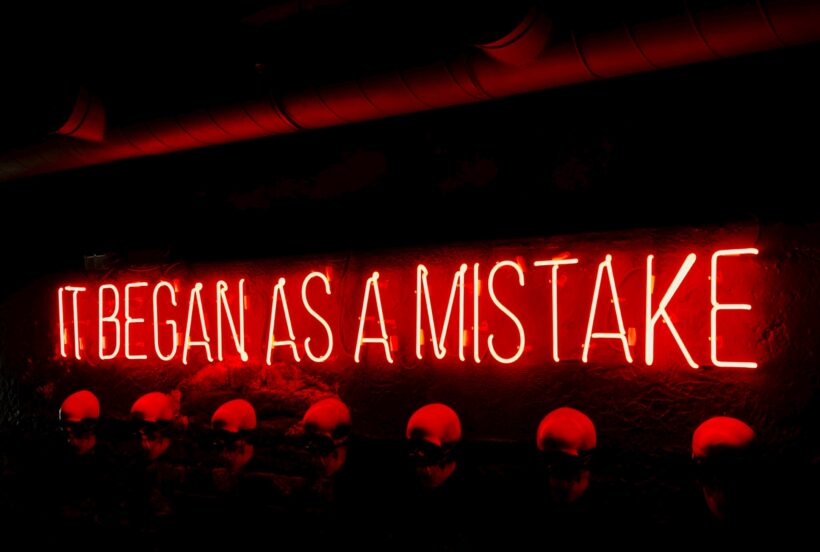A controversial take on a hot industry topic: is using Chat GPT to write your college essay cheating? Maybe, maybe not. It’s all about how you use it. Duke University announced this week they would no longer assign a numerical value to the essay as part of a student’s application: the rampant use of AI and of college writing coaches and consultants (like me!) skews the essay as a metric of a student’s independent writing ability. However, it can still give useful insights into their character. When is it cheating to use a tool? You can almost always cheat in life– including cheating on your college essay. So the question is, will you? Which begs the question, in the age of AI, is using Chat GPT to write your essay considered cheating? It depends. And it's not a new question. In college, I took a torturous 8AM Ancient Greek language class: Thucydides & The Peloponnesian War. Think: convoluted grammar, and geopolitics of long-dead people and long buried wars. Bellicosity, and weak dining hall caffeine. In a perfect world, independent work (or homework) is designed to enhance or embed learning. It’s designed for you to struggle a bit to retrieve the knowledge your ego thinks you’ve stored and mastered. However, at 2AM, when you’re stuck in a thorny section of translation, with pages left to go, and even caffeine has given up on you, what do you do? In the late 1990’s, there was no Chat-GPT, but you could look up the entire English translation of the Ancient Greek writers online- sometimes with word-for-word correspondence. You could get that homework done, correctly, on time, and by a 2:30AM bed time. Pretty tempting. Two obvious issues with cheating on your work: 1) Ethically, you didn’t really do the work by yourself. 2) The next time you hit that problem, you haven’t learned anything about how to solve it. The only thing you know how to do is where to find someone else’s answer. How to use Chat-GPT for your college essay- Continue Reading …
college admissions essays
Your story matters more than ever
Does anything matter now? Yes! It's hard to think straight some days about what matters, when we've lost so much in the past year of the pandemic. We're at the 500,000 mark, in February; where is the sun, again? But in this context, your story matters more than ever. It can be hard to think well about future, about goals, when getting through the day sometimes takes all we have-- or as my friend and mentor Margaret Klawunn put it, while we're "fluctuating between boredom and terror." Colleges are trying to keep up with the new landscape, adjusting their admission requirements to accommodate student realities, the boring, the terrible and the indelibly altered. Your story, when you find it, is neither boring, or terrifying. It's perfect, and your job is to unearth it. Continue Reading …
Julian Jimenez, Winning College Admissions Essay
When he sent the final draft of his winning college admissions essay to me, Julian confirmed my sense that good things are possible. I never know if the draft I give a standing ovation is definitely the one the student has submitted (2AM last minute changes are not unthinkable). But I was glad to see this one was. Natural Talent Julian has natural writing talent which sometimes makes it even harder for a student to figure out what belongs in their admissions essays, because so much of draft is already of strong quality. Julian faced this in his capacity to entertain the reader and find dark humor in his experience. Where to stop? What needed to be said, versus just sounded good on the page? Ultimately, he was able to cut based on what aspect of his present self he most wanted to highlight and explain. I hope you enjoy his essay as much as I (and seemingly everyone on the admissions committees) did. Julian wrote: I'm proud to tell you that I have committed to Princeton! I actually got into roughly 90% of my top choices including Dartmouth, Columbia, USC, UCLA, Berkeley, Swarthmore, University of Notre Dame, UCSD and UCSB , and a few others. Julian Jimenez, Personal statement (Princeton Class of 2024) Here comes Satanás. Behold his fiery, mischievous, defiant glory. Watch him terrorize the innocent victims...of his first grade classroom. Bored, he pinballs around the room, stopping only to implement his conniving get-out-of-school-quick strategy: rubbing his eyes bloodshot, then duping the school nurse into believing he has pink eye. Every day, after his parents spoke to another irritated teacher, he was met with a disappointed, "Aquí viene Satanás!" (Here comes Satan!) Was it his fault, though? I was born to 16-year-old parents, kicked out of their homes for having me. My first memory consists of my mother silently sobbing while pushing my stroller along dark sidewalks late at night. I wondered why she Continue Reading …
Before you write that essay about your hike…
Every year, I have students bring me that essay --the incredibly heartfelt one-- about their trip into the woods, or up a mountain. Some of these students are accomplished hikers, some total, struggling newbies. 97% of the time there are blisters in these essays. It's hard to explain to the writer that this rubs a blister in the admissions readers. But I have to try. Here's why: what you experience on the mountain top or in the mosquito-thick woods is likely very similar to what every other person who ever hiked experienced: irritation, discomfort, transcendence, appreciation, disappointment. Often, you leave with gratitude, renewed perspective. It's also very likely those two last mental states are quite short lived. That essay doesn't translate to real life! Say: until someone double-crosses you at school, or you drink soured milk your sibling put back in the fridge, or you can't get a new bus pass and you have to walk somewhere in the sheeting urban rain, or...the list of irritating things in everyday, non-hiking life that ask you to face your inner self goes on and on. Where are the woods then? Where are all those blisters and mosquitos and the high cloud vista of the craggy peaks? Admissions offers have heard that essay too many times The admissions readers have heard your story 10000000 times, maybe literally. They know you mean it-- but everyone does. They also know, because they have lived a little longer than you-- that those take-aways are often temporary. So they are looking for something more. Sorry to say: Not the cliched journey with its predictable life-lesson. So what are you to do, if that essay is burning a hole in your mind, feels like THE ONE? Find a unique angle on that essay You need to dig much, much deeper into your experience. Beyond even those aggravating, debilitating blisters that dominated your psyche at the time. Last year, I worked with a student whose essay took a long time to find itself, but when it Continue Reading …
Sometimes No is Yes: The Rejection
Give It Up for Rejection Raise your hand if you love rejection, y'all! How about a letter, formally letting you know you've been rejected? How about rejection from that one college you really thought was a safety, or that other one that held all your elaborate dreams in its gated grip? Seth Godin to the Rescue This week, I went on a Seth Godin blog binge. I recommend it: he takes unlikely, creative positions on the most common topics, and I needed some unlikely thinking, because changing baby diapers gets predictable. Luckily, I found Seth's very very smart, tart and brief post on how there is no sense in reading between the lines of a rejection letter because there is nothing there. Usually when we get rejected, our inner critic goes on a criticism carnival. Tears apart the language for truth. Or we snuff out its snide remarks with a vice of choice. Or we assume, dungeon door clanging shut, that the rest of our lives will have all the worth of soiled diapers. A Tale of No and Yes Let me tell you a story. Once upon a time there was a girl-- no, not me, but related to me. She was told by her (prestigious, infamous independent) high school's headmaster, who was an Intellectual Giant and known well by adcoms, that she could piss on a piece of paper and get into her then dream school, XX College. Well, she didn't take him literally (she had common sense), but she did apply with the goal in mind that if piss alone could get her in, surely prose and a nice academic track record would more than guarantee her spot. Wrong. The rejection letter hurt worse than bladder surgery, to push the metaphor. Not only did she not get admitted to XX PISS-ME-THERE College, but she didn't get into any of the other schools on her list either-- reach or safety, realistic or aspirational. Except one. We'll call it: School WTF? A school she'd added as after-thought. A school in which she had no interest; a school which, had she had any choice, would Continue Reading …
Who Empowers Us to Speak Up?
Speak Up Like the Daddy Mack of Eloquence MLK Jr.'s writing gets me thinking about how to help my students speak up about what they know and see to be true in this world. The brutal stuff. The beautiful stuff that exists alongside the brutal stuff. King's the Daddy Mack of eloquence--whatever you think of him, it's hard to discredit that bit. His writing, and his speeches, speak up in ways that land sound bites on t-shirts, yes, but they also unmask how our institutions and attitudes systematically undermine and destroy our humanity. He puts the painful and critical ingredients of social justice into phrasing so musical, so clear, so rich with common references, that it's hard not to listen. That's a marker of great writing-- even if you didn't want to, something makes you listen. The reach of good writing is farther than you think To tune MLK Jr out is like tearing your eyes away from a TV where a major accident is being reported-- hard, near impossible. I want his cadences to get into my students-- of every color and creed-- by osmosis, repetition, sustained exposure. I want them to write better despite themselves. This blog focuses on how the practice of good, clear writing, by a writer who is aware of his or her values and character, can get you into (your dream) college, but the reach of good writing is and should be much bigger and bolder than just that. Punch above your weight It's true what they say: silence is not just the opposite of speech. The truth might move at light-speed when it's finally set free, but to speak up, we first have to slough off the weight of a thousand slumbering elephants in our shared room. They are in the classroom, too, those heavy taboos that stop humane progress. My dream, my prayer, my practice, is that every child in every school be empowered to punch way above his or her weight, to speak up with voices that cannot be ignored because the writing is too damn good, and to send the elephants back to Continue Reading …





